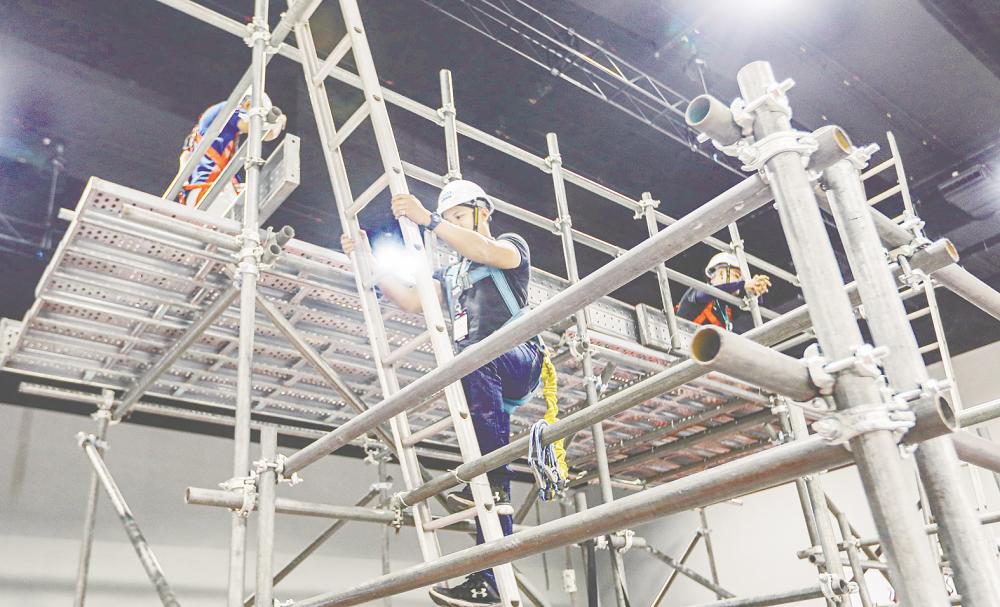PETALING JAYA: Despite having workplace safety laws, inconsistent enforcement and poor compliance continue to put workers at risk in Malaysia’s quarry and construction industries, said Universiti Teknologi Mara College of Engineering senior lecturer Dr Nor Azmi Bakhary.
He was commenting on a Jan 24 incident where a 28-year-old assistant mechanic was fatally crushed by a rubber counterweight from a conveyor machine while working at a quarry in Kelantan.
The Kelantan Department of Occupational Safety and Health (DOSH) investigation found the lack of safe work procedures as the cause of the worker’s death. It said no safe work procedure was established for the Crushing Plant machinery.
“The incident highlights the urgent need for stricter regulations, increased inspections, and higher penalties for non-compliant companies,” Nor Azmi said, adding that safety inspections at quarries and construction sites are often scheduled rather than random, causing some companies to comply only when expecting an inspection.
He said more frequent checks could also help identify companies that habitually ignore safety protocols and allow the authorities to take swift action against them. Whistleblower programmes for workers to report violations anonymously would further improve enforcement.
According to the Statistics Department, a total of 324 cases of fatal occupational injuries were recorded in 2023 or 2.05 fatalities per 100,000 workers.
Nor Azmi stressed that fatal accidents not only tarnish the industry’s reputation by exposing serious safety lapses, but also create long-term consequences for workforce sustainability and discourage potential workers from joining it.
He added that workplace fatalities also have a psychological impact on existing employees, causing anxiety and fear about their safety and causing them to hesitate to perform high-risk tasks or demand better safety measures.
“Workers who feel unsafe may become less productive while their industry may face labour shortages as people seek employment elsewhere. Stricter safety enforcement, increased awareness, and a genuine commitment to worker protection are crucial to preventing future tragedies.”
Nor Azmi said reports from DOSH indicate that the construction industry is among the top industries for workplace fatalities in Malaysia with many accidents occurring due to improper machinery handling, lack of personal protective equipment and poor adherence to occupational safety guidelines.
He said companies must adopt a proactive approach to safety and implement technology-driven monitoring systems such as artificial intelligence-powered surveillance cameras and wearable safety sensors for workers.
“Based on the International Labour Organisation Safety Guidelines, investing in automation where possible to reduce human involvement in dangerous tasks can further enhance workplace safety.”
Nor Azmi said high-profile accidents often spark temporary discussions, but lasting change requires sustained pressure from regulators, unions, and the public. If the Jan 24 death is investigated thoroughly, it may lead to policy reviews and stricter enforcement.
“However, genuine reform will require the government to introduce mandatory safety certifications, enforce ongoing safety training for all employees, and hold company executives accountable for safety lapses,” he said.
According to the Human Resources Ministry, companies violating the Occupational Safety and Health (Amendment) Act 2022 and the Factories and Machinery Act (Repeal) Act 1967 will face a maximum fine of RM500,000.
Nor Azmi said the International Labour Organisation has emphasised that government agencies like DOSH must be empowered with greater authority to impose heavier fines and shut down repeat offenders.
“Strengthening worker education on safety protocols and ensuring the presence of safety officers at all times could further reduce risks.
“To rebuild trust among employers and employees, companies must commit to transparent safety reporting, improve working conditions, and demonstrate a genuine concern for employee welfare through concrete actions rather than mere policy statements,” he said.









